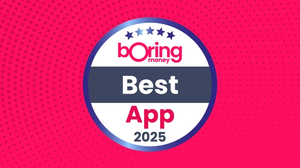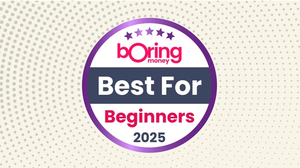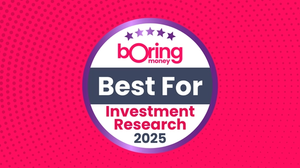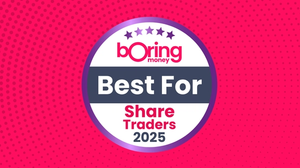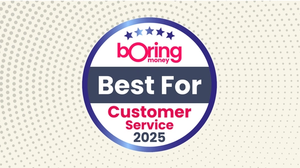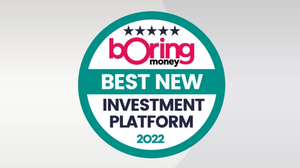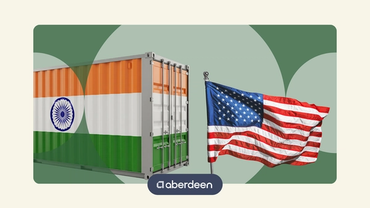12 things you need to know to be an investor
22 Mar, 2022
You don’t have to be the Wolf of Wall Street to be a good investor. In fact, if you stick with some key principles, you can get the hang of it pretty quickly without having a PhD in economics! So if you're new to investing and don't have a clue where to start, here are 12 things you need to know.
Investments exist so that countries and companies can raise money. We collectively give them money so that they can afford to trade (East India Company), build roads (governments) or buy new planes (British Airways). We do this because they will either pay us some interest on our loans, or because we hope they’ll do well, get more valuable and so our share in the company will go up in value.
There are 5 main types of investment that retail investors tend to think about: Cash, property, gold, bonds, and shares. Cash, property and gold are exactly what you think they are. Bonds are like IOUs we receive from countries and companies which net us some interest and a share of any good fortune the company has. Shares - or equities in banker speak - are literally buying ownership of a small fraction of the company.
Generally, it’s a good idea to have a mix of the different types of investment because they balance each other out. The horrific events in the Ukraine have recently reminded us of this. Against awful scenes of Russian aggression, commodities (things like oil and wheat and metals) shot up, and more traditional stock markets tanked. In 2020, as we sat at home, airlines suffered whilst Zoom and Peloton soared. It’s impossible to predict these events and so a good spread of sectors, regions and types of investment is a very good idea.
We all know that investing carries risk. But this risk is not the same as running across a motorway, which is just stupid risk! Investing risk typically means volatility, and is not to be confused with being cavalier or putting it all on black. It’s just describing how much something will jump up and down in value. Think of it like this: Cash is like a staid old tortoise. Bonds are like a gentle wave. UK shares are like the Peak District. And Emerging Market shares are like a grasshopper on speed.
One of the most important questions is how long your timeframe for investing is. The main thing is to avoid being a forced seller when things are rubbish. If you had invested in 2005 and needed the cash to buy a house in 2008 after the global meltdown, you would’ve been stuffed. If you had invested in 2005 and taken the money out in 2015, you would have made 74%. The longer your timeframes, the more volatility you can stomach. If you’re saving for 20 years and are sitting in the comfort blanket of cash, the major risk is that you won’t have enough money when you retire. Taking out a cash Junior ISA for a baby is nothing short of bonkers. This is an 18 year contract, so for heaven’s sake, spice it up for schnookums!
Less confident or time-poor investors should avoid buying single shares or following tips from the cabbie or an ‘expert’. Use a fund. This has been true since the 1600s, when investors realised that packaging together and backing multiple ships and journeys of the East India Company was smarter than backing just one, which could be sunk or raided. Think of a fund manager like a personal shopper you employ to find the best things for you and match them together. A fund will typically have about 30 – 80 investments in it, but you don’t have to do the choosing or monitoring.
A great way to start is a ‘multi-asset’ fund. Going back to point number 2, this means you pick one investment fund and in that, the experts will blend all of those investment types from around the world. So you get a truly balanced meal with a dash of China, a dollop of bonds, and a pinch of Apple. A passive multi-asset fund is the cheapest way to get going. You’ll generally have to choose how risky you are prepared for this to be. Back to question 5 and timeframes. 5 years or less? Go less risky. 10 years or more? You can spice things up.
Don’t pay more tax than you need to. We all have a £20,000 ISA allowance every year. An ISA is like a see-through financial Tupperware box you stick your investments into and the tax man can’t get into it. Make sure you use it. Feel like playing it safe? Get a Cash ISA. Or opt for a Stocks & Shares ISA if you’re planning not to withdraw your cash for a while.
Don’t procrastinate. There is no right time to start and no-one has a clue what the future holds. Not even very clever grey-haired mathematicians. We live with trade wars, oil price shenanigans, Brexit blah, lunatic leaders, and in a nation that apparently likes Love Island. This all defies logic and how grown-ups should behave. Drip-feeding in a little every month on a direct debit is a good way to smooth out the price at which you buy in to the markets.
Don’t panic if in year one things go south! In 2008, £1,000 in the FTSE fell to about £700. The next year it basically made it all up. If the Daily Mail shrieks stock market meltdown in the headlines, consider topping up. The stock market is “On Sale” and cheaper than it was last week. This take cojones by the way, but is actually quite sensible.
Ignore all the waffle and jargon and over-complexity. If the experts could really predict what markets would do, they wouldn’t need to work as an expert. Save as much as you can, as often as you can, as early as you can. Pick a simple investment to get started with. Don’t overpay.
I would suggest... incorporating Vanguard’s LifeStrategy in an ISA if you’re worried about high fees. If you only want to start with a tiny amount, try Wealthify, which opens an account from as little as £1. If it’s a pension and you like the security of a huge brand which won’t go anywhere, then try Aviva for a (relatively) simple journey. And if you’re time poor and want someone to do it all for you, try Nutmeg, which asks a few questions and then does a Blue Peter “here’s-one-I-made-earlier". Our Best Buy Compare Tables have lots of filters so you can pick the right one for you.
Keep these points in mind as you invest and your wallet should thank you for it. If you're looking for the right investing account for you, make sure you check out the winners of our Best Buy Awards 2022, where you can find the Best for Beginners, Best App, Best for Sustainable Investing, and more!



